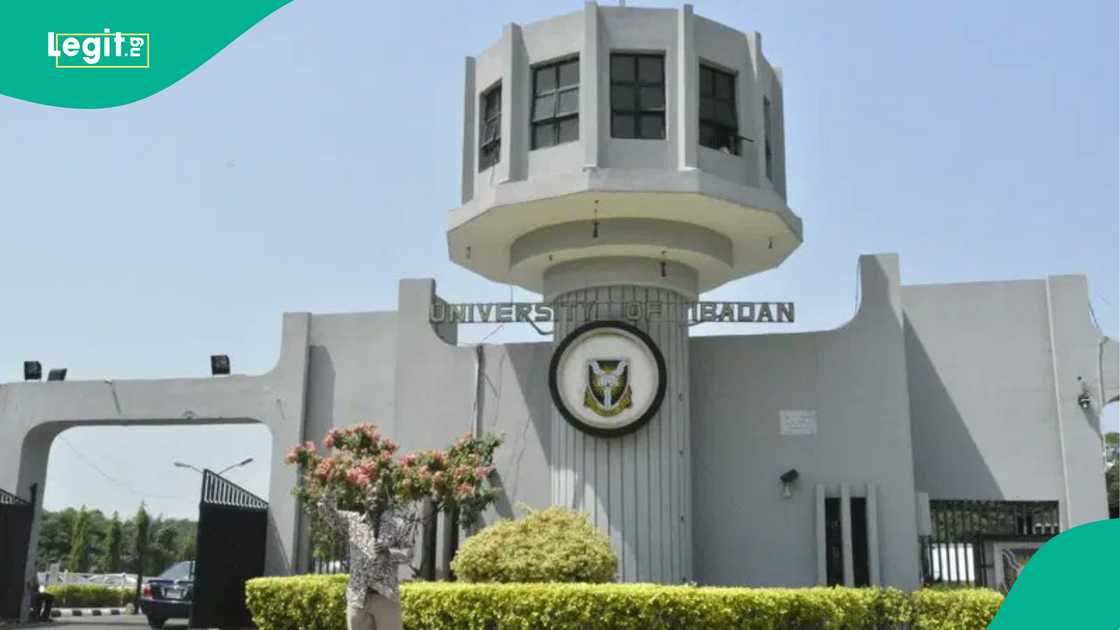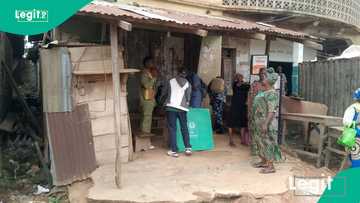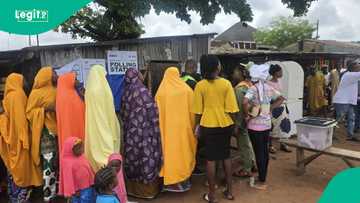Tinubu's Govt Approves N68.7bn For Solar Projects in Universities, Hospitals, Full List Emerges
- The federal executive council (FEC) approved N68.7 billion for key electricity projects in universities and teaching hospitals across Nigeria
- Authorities said the projects reflect the government’s resolve to ensure steady electricity supply in vital sectors like education and health
- The university project involves engineering, procurement, and construction under the Energising Education Programme, led by the Rural Electrification Agency
Legit.ng journalist Ridwan Adeola Yusuf has over 9 years of experience covering public affairs and governance in Nigeria.
FCT, Abuja - The recent federal executive council (FEC) meeting, chaired by President Bola Tinubu, reportedly approved N68.7 billion for the rollout of solar mini-grid initiatives in designated universities and healthcare facilities nationwide.
Dada Olusegun, the special assistant to the president on social media, disclosed this via his official X (formerly Twitter) account on Tuesday, August 19.

Source: Facebook
Olusegun said the project time frame is seven to nine months.
The initiative seeks to enhance learning environments, boost research capacity, and strengthen reliable electricity in key academic and medical institutions, which include the University of Lagos (UNILAG) and the University of Nigeria (UNN).
Below is a list of all the institutions benefitting from the initiative:
1) University of Lagos
The University of Lagos (UNILAG) is a public research university located in Lagos, Nigeria, and was founded in 1962.
UNILAG is one of the first-generation universities in Nigeria and is ranked among the top universities in Africa in major education publications.
As of 2024, UNILAG admits around 8,500 undergraduate students annually and enrols over 57,000 students.
2) Obafemi Awolowo University
OAU is a federal university in Ile-Ife, Osun state, Nigeria. The university was founded in 1961 and classes commenced in October 1962 as the University of Ife by the regional government of Western Nigeria, which was led by Samuel Ladoke Akintola. It was renamed 'Obafemi Awolowo University' on May 12, 1987, by the Ibrahim Badamasi Babangida-led military administration, in honour of Obafemi Awolowo (1909–1987), the first premier of the Western Region of Nigeria, who initially thought of the idea of establishing the university.
3) Ahmadu Bello University
ABU is a public research university located in Zaria, Kaduna state. It was opened in 1962 as the University of Northern Nigeria. The university has four colleges, three schools, 18 faculties, 110 academic departments, 17 centres, and seven institutes with over 600 professors, about 3000 academic staff and over 7000 non-teaching staff. The university has over 400 postgraduate programmes reflecting its strive to become a postgraduate studies-centred university.
4) University of Nigeria
The University of Nigeria, commonly referred to as UNN, is a federal and public research university located in Nsukka, Enugu state, south-east Nigeria.
The University of Nigeria is the first indigenous and first autonomous university in Nigeria, and is modelled after the American educational system.

Source: Twitter
5) University of Ibadan, with UCH
The University of Ibadan (UI) is a public university located in Ibadan, Oyo state.
UI enrols about 33,000 students. It is internationally recognised and has several accomplished alumni. The University College Hospital (UCH) will also benefit from the FG's solar project.

Read also
Breaking: APC loses Ibadan North federal constituency as INEC declares winner of bye-election
6) University of Calabar
The University of Calabar is a federal university situated in Calabar, Cross River state, Nigeria. It is one of Nigeria's second-generation federal universities.
The University of Calabar was a campus of the University of Nigeria until 1975.
7) Federal University Wukari
The Federal University Wukari was established in 2011 by the federal government of Nigeria, led by the then President, Goodluck Jonathan. It was one of the nine schools established at the time.
Federal University Wukari is located in the town called Wukari in Taraba state.
8) Agricultural and rural development clusters
Agricultural and rural development clusters in Nigeria refer to geographically concentrated groups of interconnected businesses and institutions focused on agricultural production and related activities.
These clusters aim to leverage the benefits of proximity, collaboration, and shared resources to enhance productivity, innovation, and overall economic development in the agricultural sector and rural areas.
ASUU to embark on nationwide protests

Read also
Apply: 3 job, loan opportunities recently shared by FG that youths, academics, others can put in for
Earlier, Legit.ng reported that the Academic Staff Union of Universities (ASUU) resolved to embark on nationwide protests to press home its demands.
ASUU, in a communiqué, accused the federal government of foot-dragging on outstanding issues.
Proofreading by James Ojo, copy editor at Legit.ng.
Source: Legit.ng




